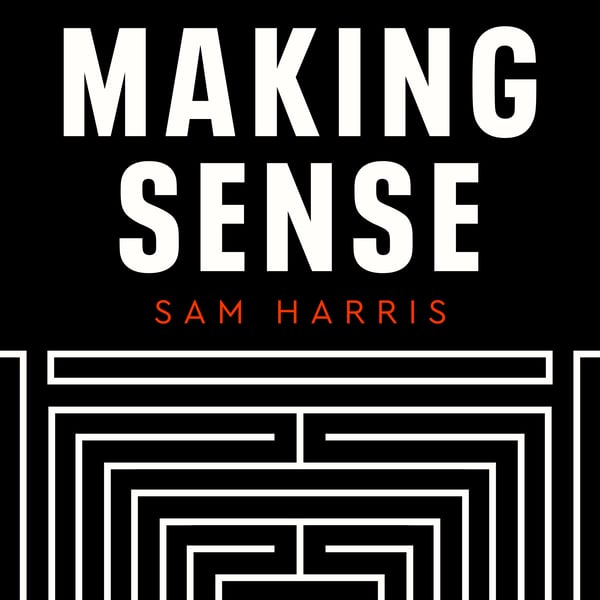#38 — The End of Faith Sessions 2
Making Sense with Sam Harris
Waking Up with Sam Harris
4.6 • 29.1K Ratings
🗓️ 15 June 2016
⏱️ 40 minutes
🧾️ Download transcript
Summary
Sam Harris reads and discusses the second chapter of "The End of Faith." However, the first hour of this podcast focuses on Donald Trump, Hillary Clinton, and the political implications of the recent terrorist attack in Orlando. Discussion of The End of Faith begins at 1:04:30.
SUBSCRIBE to listen to the rest of this episode and gain access to all full-length episodes of the podcast at samharris.org/subscribe.
Transcript
Click on a timestamp to play from that location
| 0:00.0 | Welcome to the Making Sense Podcast. This is Sam Harris. Just a note to say that if you're |
| 0:12.1 | hearing this, you are not currently on our subscriber feed and will only be hearing |
| 0:16.2 | the first part of this conversation. In order to access full episodes of the Making Sense |
| 0:20.7 | Podcast, you'll need to subscribe at samharis.org. There you'll find our private RSS feed |
| 0:26.1 | to add to your favorite pod catcher, along with other subscriber-only content. We don't run ads |
| 0:31.2 | on the podcast, and therefore it's made possible entirely through the support of our subscribers. |
| 0:35.8 | So if you enjoy what we're doing here, please consider becoming one. |
| 0:38.7 | Today I'm going to continue with the end of Faith Sessions, chapter 2. |
| 0:56.3 | Chapter 2. The Nature of Belief. It is often argued that religious beliefs are somehow |
| 1:02.8 | distinct from other claims to knowledge about the world. There's no doubt that we treat them |
| 1:07.6 | differently, particularly in the degree to which we demand in ordinary discourse that people |
| 1:12.4 | justify their beliefs. But this does not indicate that religious beliefs are special in any |
| 1:17.2 | important sense. What do we mean when we say that a person believes a given proposition about the |
| 1:22.8 | world? As with all questions about familial events, we must be careful that the familiarity of our |
| 1:28.6 | terms does not lead us astray. The fact that we have one word for belief does not guarantee that |
| 1:34.2 | believing is itself a unitary phenomenon. An analogy can be drawn to the case of memory, while |
| 1:40.0 | people commonly refer to their failures of quote memory. Decades of experiment have shown that |
| 1:45.3 | human memory comes in many forms. Not only are our long-term and short-term memories the products |
| 1:50.8 | of distinct and dissimilar neural circuits, they have themselves been divided into multiple |
| 1:55.8 | subsystems. To speak simply of memory, therefore, is now rather like speaking of experience. |
| 2:02.2 | Clearly, we must be more precise about what our mental terms mean before we attempt to understand |
| 2:06.5 | them at the level of the brain. Even dogs and cats, insofar as they form associations between people, |
... |
Please login to see the full transcript.
Disclaimer: The podcast and artwork embedded on this page are from Waking Up with Sam Harris, and are the property of its owner and not affiliated with or endorsed by Tapesearch.
Generated transcripts are the property of Waking Up with Sam Harris and are distributed freely under the Fair Use doctrine. Transcripts generated by Tapesearch are not guaranteed to be accurate.
Copyright © Tapesearch 2025.

